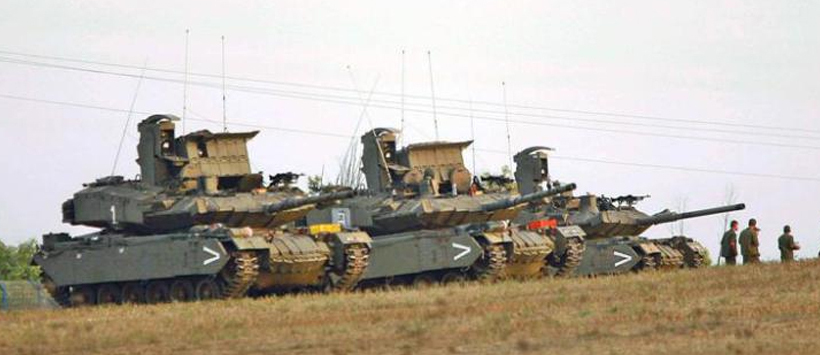Zarvan
ELITE MEMBER

- Joined
- Apr 28, 2011
- Messages
- 54,463
- Reaction score
- 87
- Country
- Location

The PF-98 is one of the largest anti-tank rocket launchers in the world
Country of origin China
Entered service mid 1990s
Caliber 120 mm
Rocket weight ?
Weight (traveling order) ~ 10 kg
Weight (loaded) 29 kg (?)
Length (travelling order) 1.19 m
Length (loaded) ?
Muzzle velocity 310 m/s
Rate of fire 3 ~ 4 rpm
Sighting range 800 m
Range of effective fire 400 m
Maximum range 2 000 m
Penetration 800 mm
Few anti-tank weapons are clouded in as much obscurity as the PF-98 manufactured by NORINCO. It’s one of the world’s largest shoulder-fired rocket launchers, being just slightly smaller than the Russian 125 mm RPG-29.
Like a lot of modern Chinese weapon systems the PF-98 shares commonalities with several different armaments. Its resemblance to the Serbian single-use M90 rocket launcher is quite startling. But its operation and deployment appears to have been modeled on legacy Russian and Western recoilless weapons such as the RPG-29 or the experimental Bofors AT-12T.
Perusing the small body of literature on the PF-98 reveals it was a late product of the PLA’s modernization during the 1990s. Its purpose is construed as a large caliber replacement for the antiquated Type 83 recoilless rifle used by the PLA ground forces.
The PF-98 was first adopted by the PLA’s Hong Kong Garrison in the late 1990s, either in 1997 or 1998, and it was subsequently deployed alongside the smaller PF-89 (a Chinese AT-4 clone) among infantry units.
The PF-98 is recognizable for its ribbed fiberglass launch tube with a dull green finish. A distinctive muzzle brake and breech are very apparent. All PF-98’s feature a carrying handle for portability and a single RPG-type pistol grip is found underneath the launch tube.
The PF-98 is used by designated anti-tank teams and its by-the-book operation requires three soldiers. When firing from concealment the PF-98 is mounted on a collapsible tripod but a single infantryman can use the PF-98 in concealment as long as he remains mindful of its large back blast. During each of these scenarios a specially made optical sight is attached. Details about this particular technology are scarce. One writer suggests there are separate sights issued for battalion and company-level PF-98’s.
The PF-98’s sights are believed to be capable of either limited thermal imaging or have an embedded rangefinder.
Before it’s fired a PF-98 is loaded via a separate canister attached to its breech, which is a mechanism that’s uncannily similar to the French LRAC or the Israeli B-300. The canister carries a 120 mm High Explosive Anti Tank (HEAT) round. For defeating fortifications a 120 mm High Explosive (HE) round is also available.
As an unguided rocket fired from a recoilless tube the PF-98 is believed to be effective from 8 to within 400 meters. It’s assumed the PF-98 can punch through 800 mm of rolled homogenous armor—that is, if it’s compared to the Serbian M90/91 single-use rocket launcher since both systems are nearly alike. It’s certain the PF-98 is well-suited against most armored vehicles and hardened fortifications. Whether it can defeat third-generation MBTs remains to be seen since it has never fought against tanks.
China remains the only credible operator of the PF-98. Some claim at least two other Asian countries, including Bangladesh, have acquired it although evidence proving so is hard to verify.
PF-98
Anti-Tank Rocket Launcher

PF-98
Anti-Tank Rocket Launcher

PF-98
Anti-Tank Rocket Launcher

PF-98
Anti-Tank Rocket Launcher

PF-98
Anti-Tank Rocket Launcher

PF-98
Anti-Tank Rocket Launcher

http://www.military-today.com/firearms/pf_98.htm












